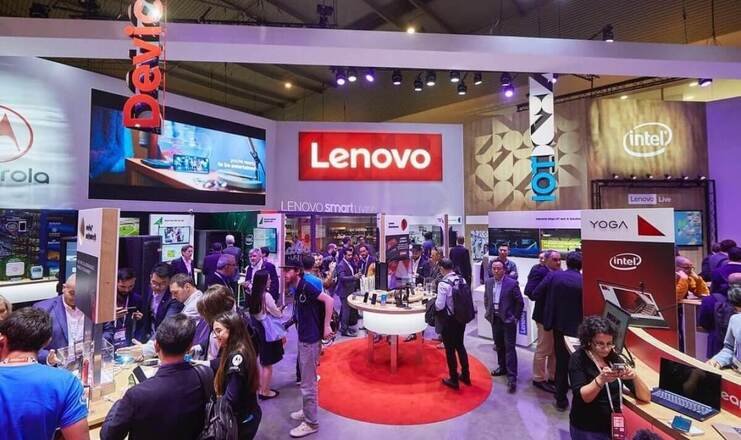Lenovo has significantly expanded its Hybrid AI Advantage initiative with a new suite of integrated platforms, services, and industry-specific solutions aimed at helping enterprises operationalize artificial intelligence at scale. The new offerings are designed to address key barriers in AI adoption – ranging from infrastructure limitations and technical complexity to workforce readiness – and provide a full-stack framework for building, deploying, and managing AI-driven operations across diverse environments.
With AI investment expected to reach nearly 20% of IT budgets by 2025, Lenovo’s latest move is both timely and strategic. Its expanded Hybrid AI Advantage portfolio equips organizations with purpose-built infrastructure, validated software platforms, and tailored consulting services to unlock AI-driven business value faster and more efficiently.
According to Lenovo’s Global CIO Playbook, two-thirds of enterprises have yet to achieve meaningful returns on their AI investments. A lack of scalable solutions, training, and internal alignment continues to hinder progress. Lenovo aims to close this gap with hybrid AI capabilities that deliver end-to-end solutions – spanning data, models, infrastructure, services, and real-world use cases – across the entire organizational footprint.
Ashley Gorakhpurwalla, President of Lenovo’s Infrastructure Solutions Group, emphasized the strategic importance of this approach: “Lenovo is leading hybrid AI with integrated solutions that turn innovation into impact. Our goal is to help businesses realize tangible gains by implementing trusted AI use cases, increasing productivity, and creating data-driven value faster.”
Lenovo’s approach is paying off, with global adoption of its AI solutions rising nearly 40% since it announced a $1 billion investment to accelerate AI deployment. Now, the company is deepening its offering with AI-enabled services that support scalable infrastructure rollouts and enterprise-wide enablement.
A key component of Lenovo’s strategy is addressing the human factor in AI adoption. Despite rising demand for AI capabilities, only half of employees feel adequately supported in AI training. To address this, Lenovo has introduced its AI Adoption and Change Management Services. These services include the AI People Readiness Assessment to identify high-impact use cases and target personas, persona-based training to enhance engagement, and structured programs to guide Copilot adoption and cultural alignment around ethical AI practices.
Plug-and-Play Tools for Verticals
Lenovo’s hybrid AI platforms are built to support a wide variety of enterprise needs. New validated solutions – developed in collaboration with NVIDIA, Intel, and other key partners – provide plug-and-play tools for verticals such as hospitality, retail, manufacturing, and workplace safety. These include:
- A hospitality solution with NVIDIA and Centific that enhances guest experience and operational efficiency
- A workplace safety monitoring system using Avathon Visual AI and NVIDIA technology, which detects hazards in real time
- A retail analytics tool developed with WaitTime and Intel, which uses edge-based computer vision to deliver insights from live camera feeds
- A quality control system with Trifork and NVIDIA that performs automated defect detection on the manufacturing floor
Lenovo’s AI infrastructure portfolio also benefits from an expanded partner ecosystem. Building on its collaborations with IBM, Cisco, and NVIDIA, the company has introduced new high-performance platforms that blend compute power, networking, and software in a unified architecture. These platforms form the foundation of what Lenovo refers to as enterprise AI factories – modern data centers capable of running high-volume AI workloads.
Among the new offerings is the Lenovo ThinkSystem SR680a V4, an air-cooled, high-density system designed for graphics-intensive tasks such as large language model training and simulations. Powered by Intel Xeon 6 processors and NVIDIA’s latest Blackwell GPUs, the server supports up to eight NVIDIA SuperNICs and an NVIDIA BlueField-3 DPU for accelerated data movement and secure workload isolation. Lenovo reports the system can deliver up to 11 times faster AI inference and 7 times greater compute performance compared to previous generations.
IBM Watsonx, Hybrid AI
Another major development is the Lenovo Hybrid AI Platform with IBM Watsonx. Built on Lenovo ThinkSystem SR675 servers, Red Hat OpenShift, and NVIDIA technology, the platform is engineered to accelerate generative AI development and governance, offering pre-integrated infrastructure that simplifies deployment and shortens time to value.
In collaboration with Cisco, Lenovo is also rolling out a new hybrid AI solution that integrates Cisco Nexus switches with NVIDIA Spectrum-X for 1.6x faster AI networking. Managed via Cisco’s Nexus Dashboard, the platform supports hybrid environments – whether as extensions of existing infrastructure or entirely new deployments – and offers a robust path for enterprises transitioning from CPU-centric systems to GPU-accelerated architectures.
Ken Wong, Executive Vice President and President of Lenovo’s Solutions and Services Group, underlined the broader impact of the expanded portfolio: “With the Lenovo Hybrid AI Advantage, we are helping customers translate AI potential into real performance gains. It’s about making AI accessible and impactful in every department, every function.”
As AI adoption continues to move from experimentation to enterprise-wide execution, Lenovo’s expanded portfolio offers a strategic path forward. By combining proven infrastructure, pre-validated industry solutions, and human-centric services, Lenovo is positioning itself as a key enabler for organizations seeking to operationalize AI at scale – with the speed, flexibility, and security modern business demands.


